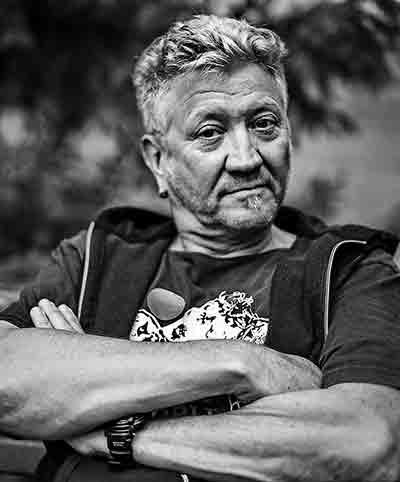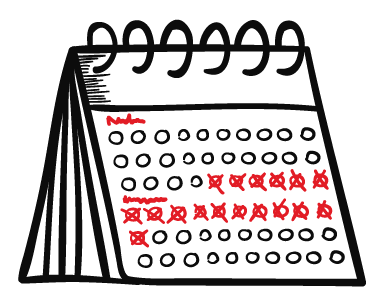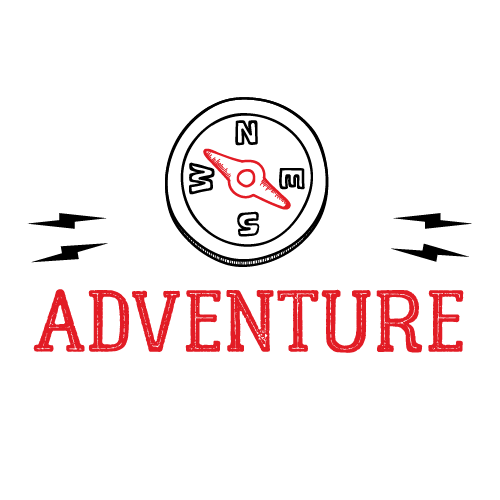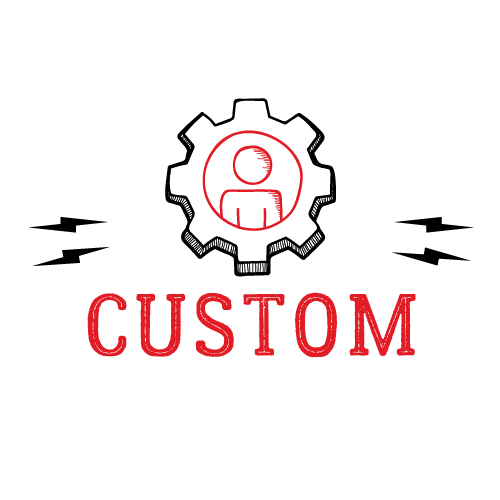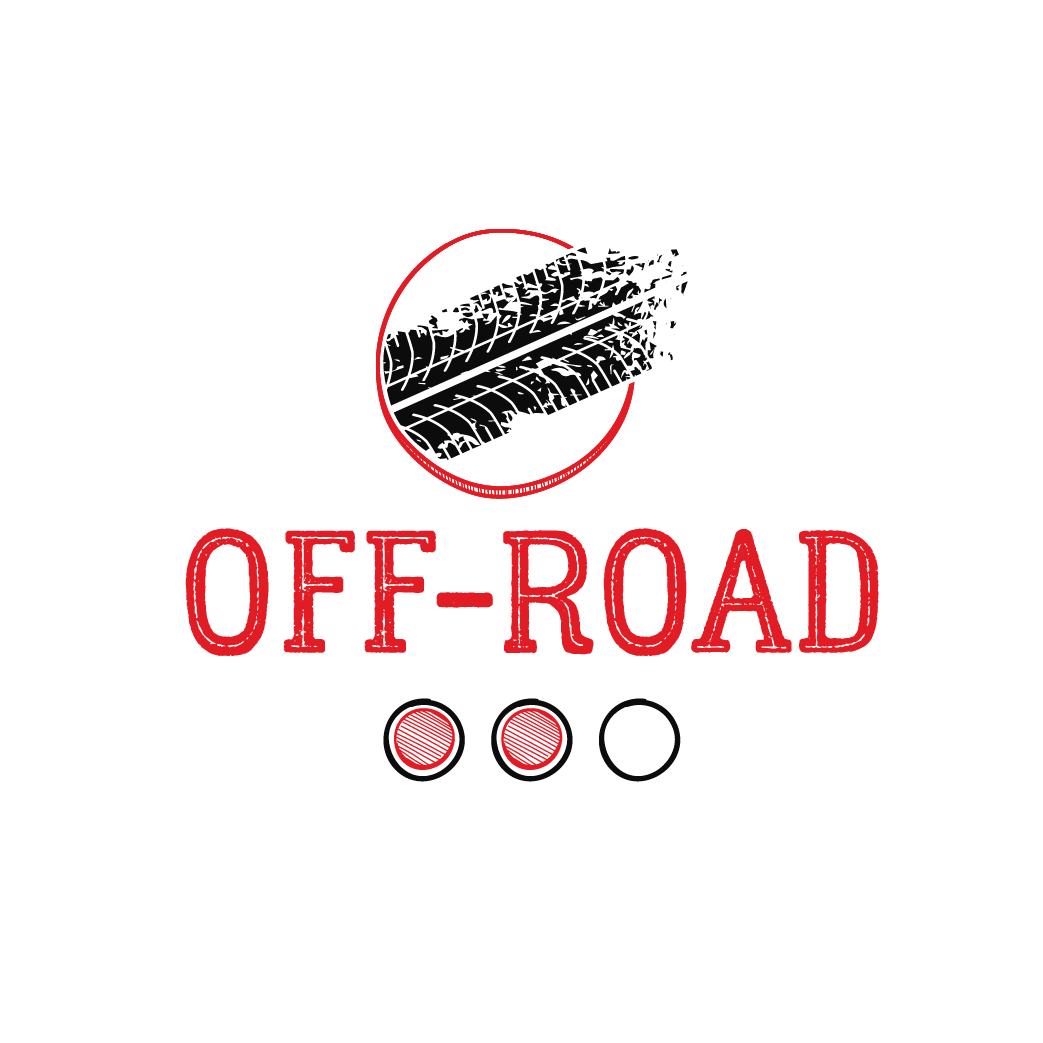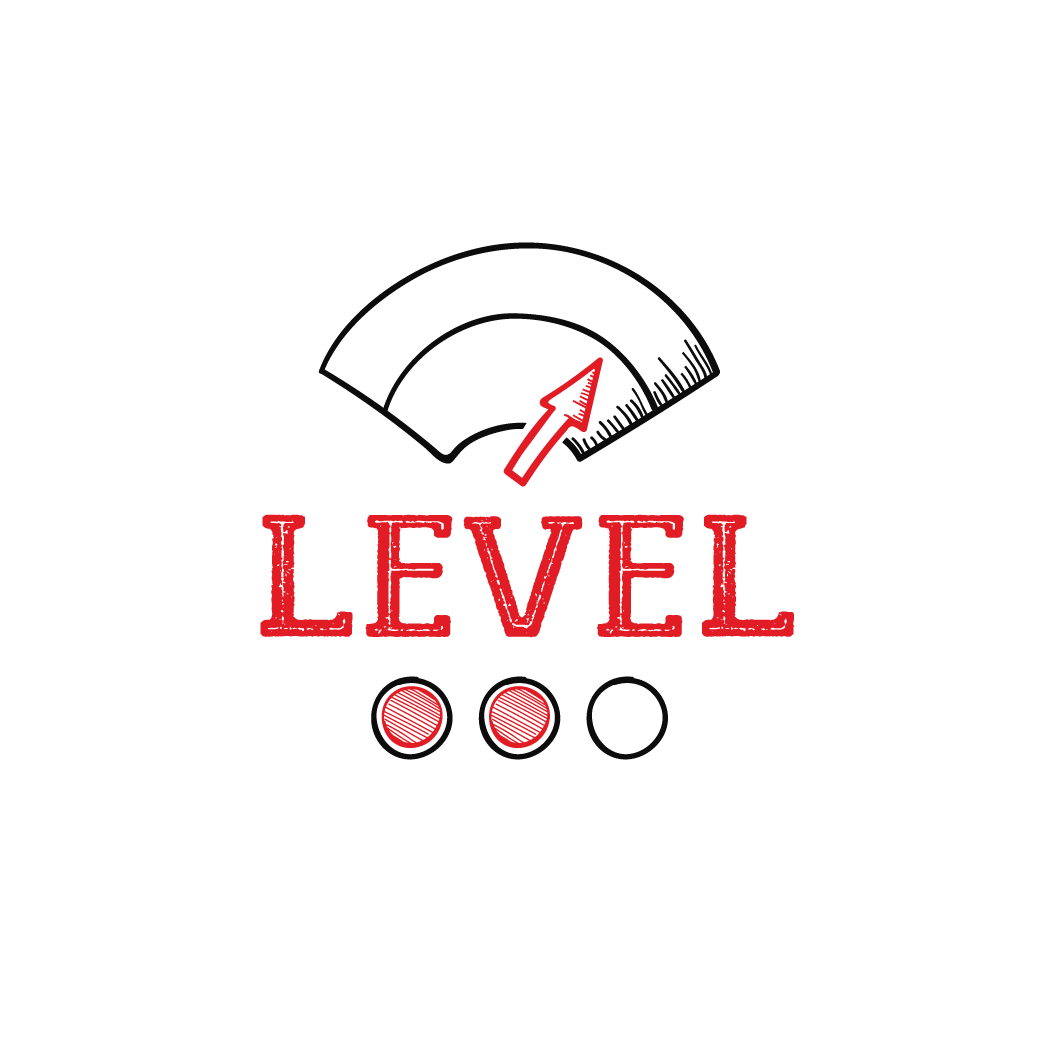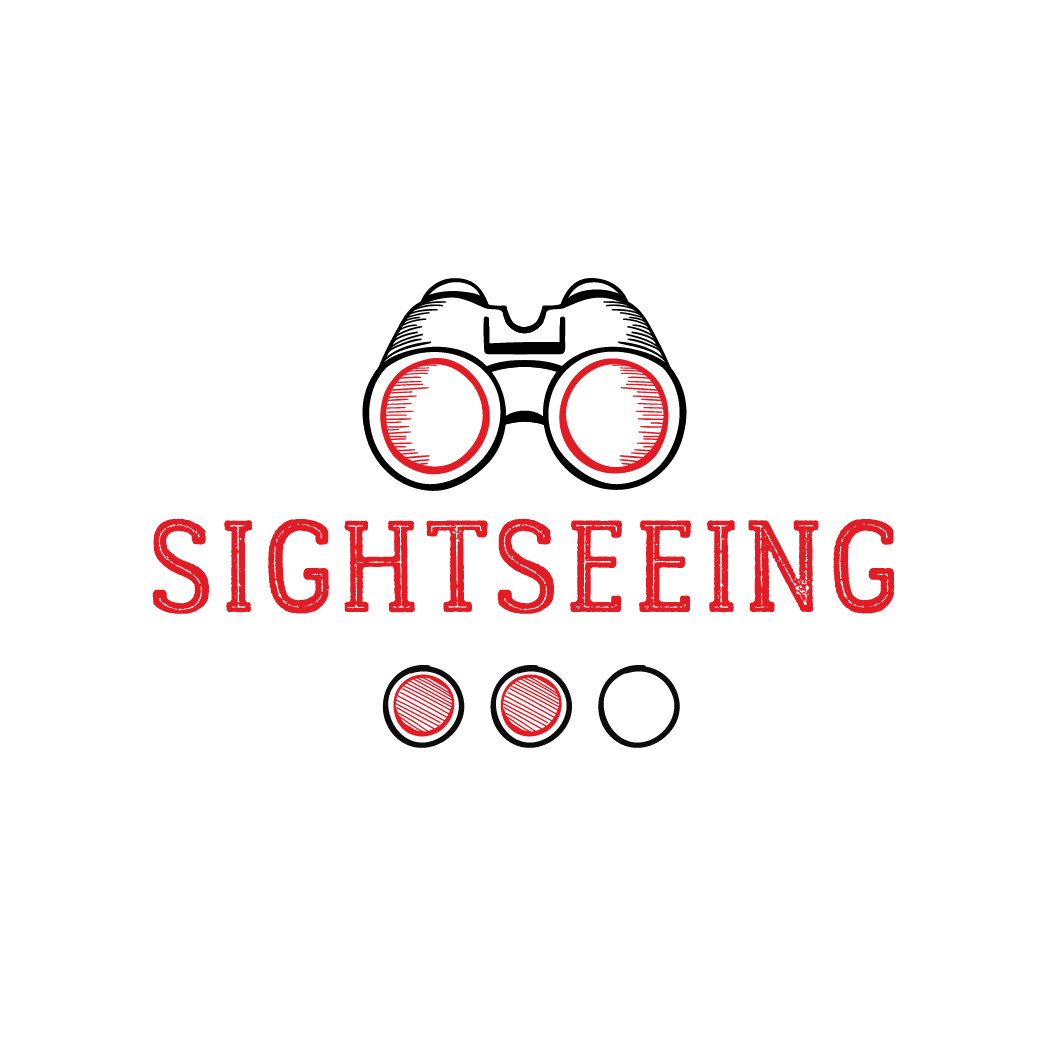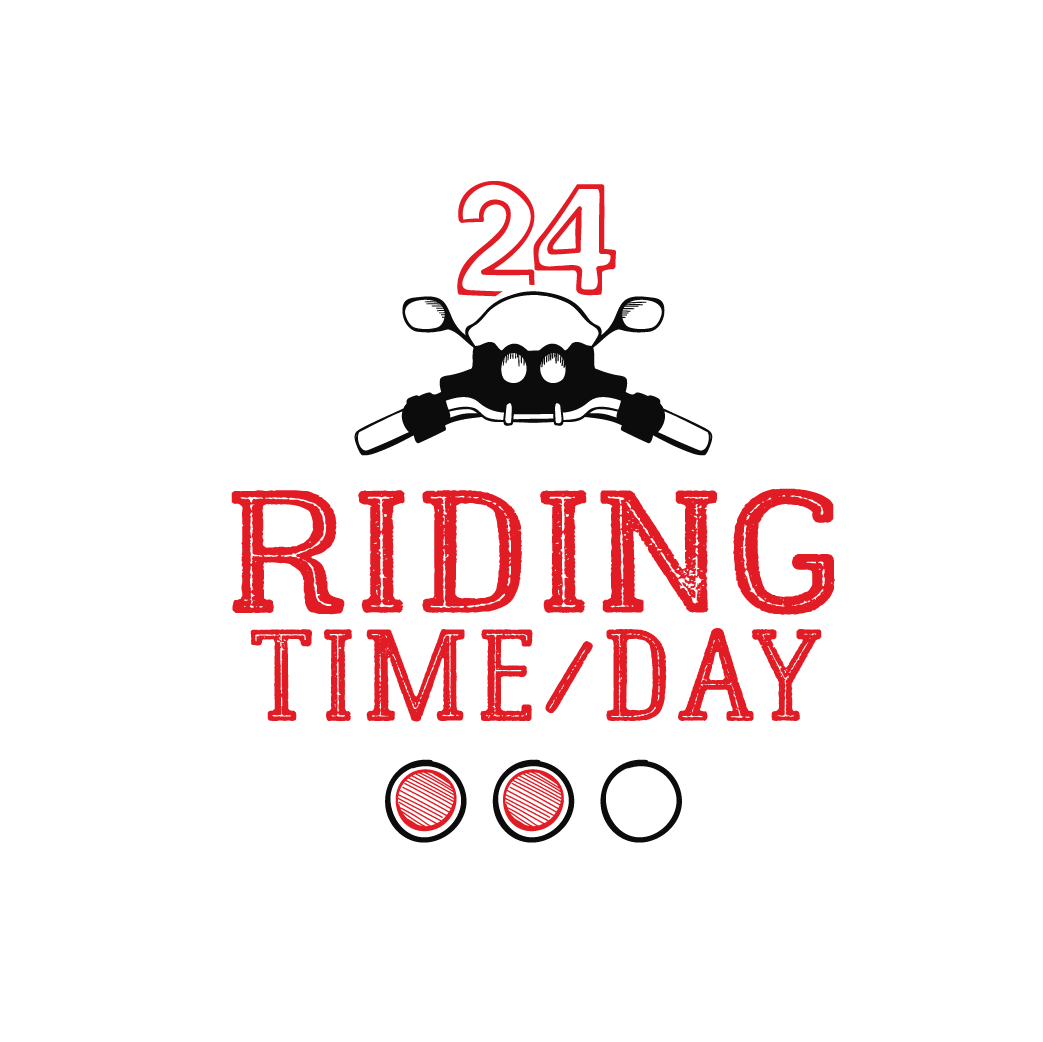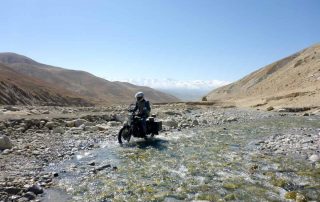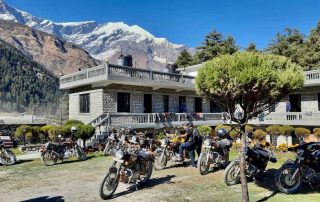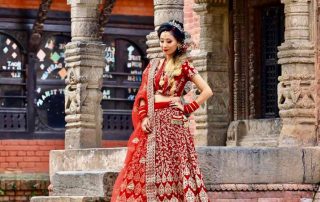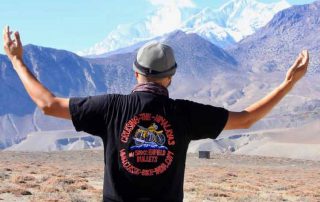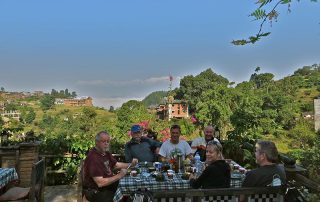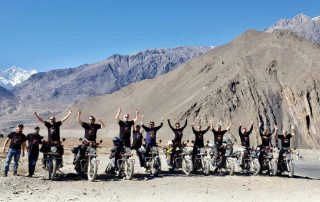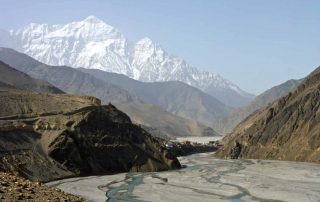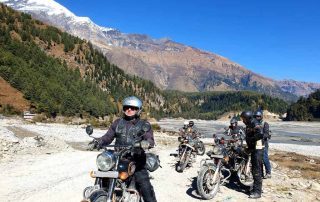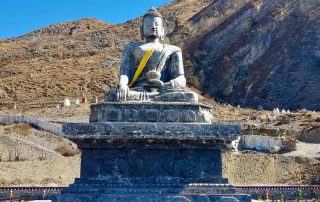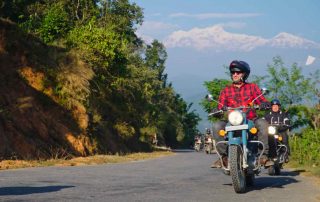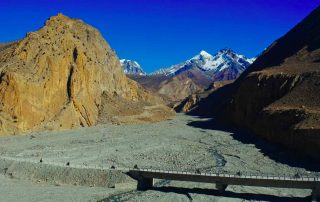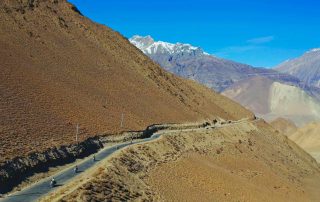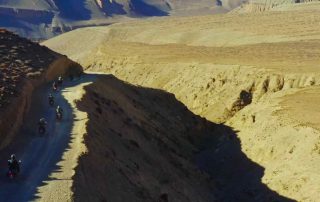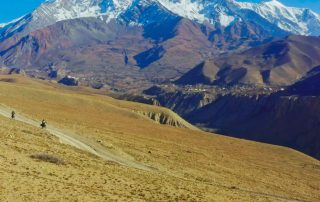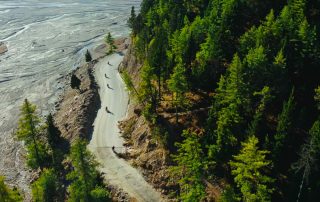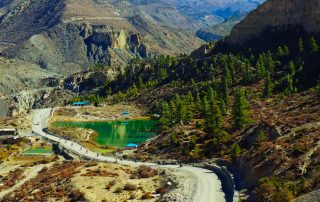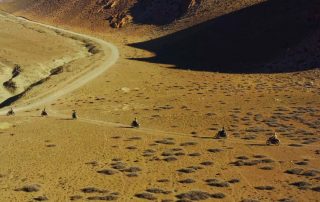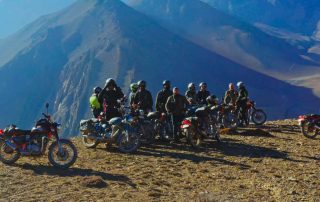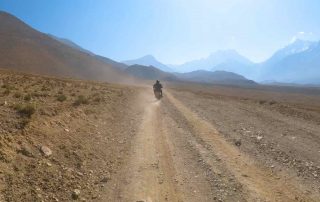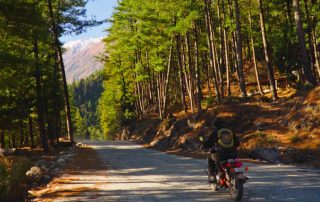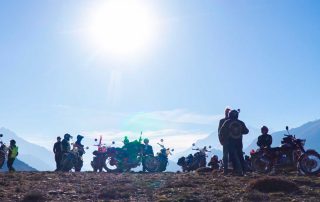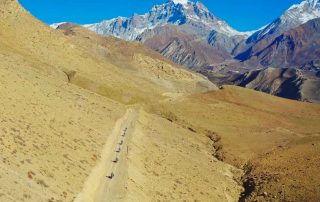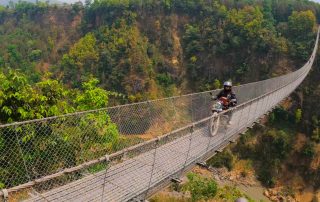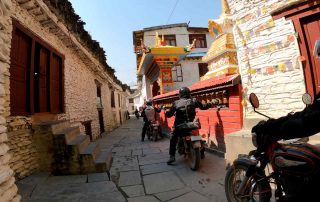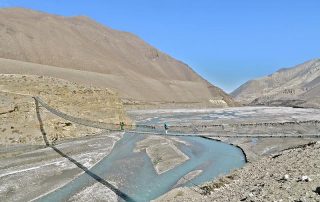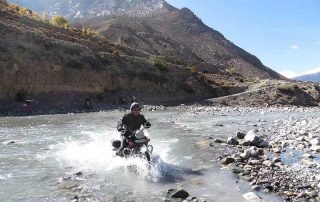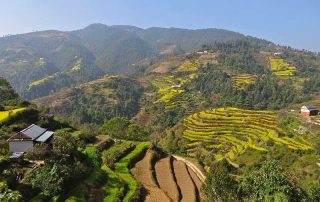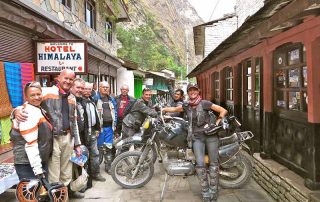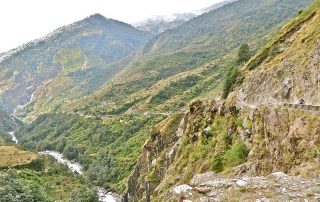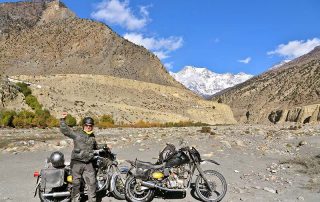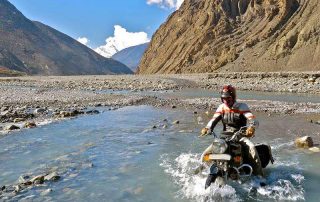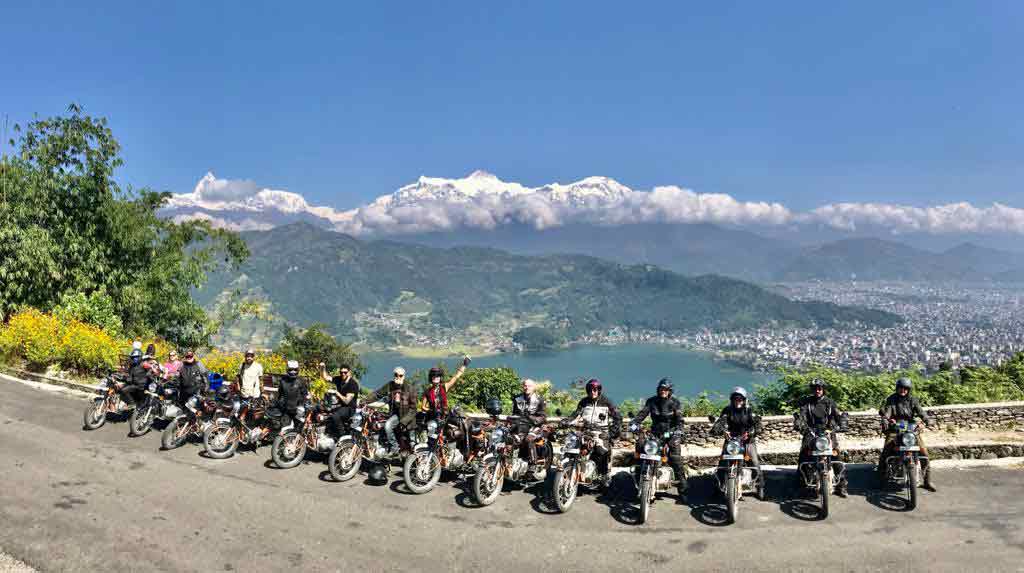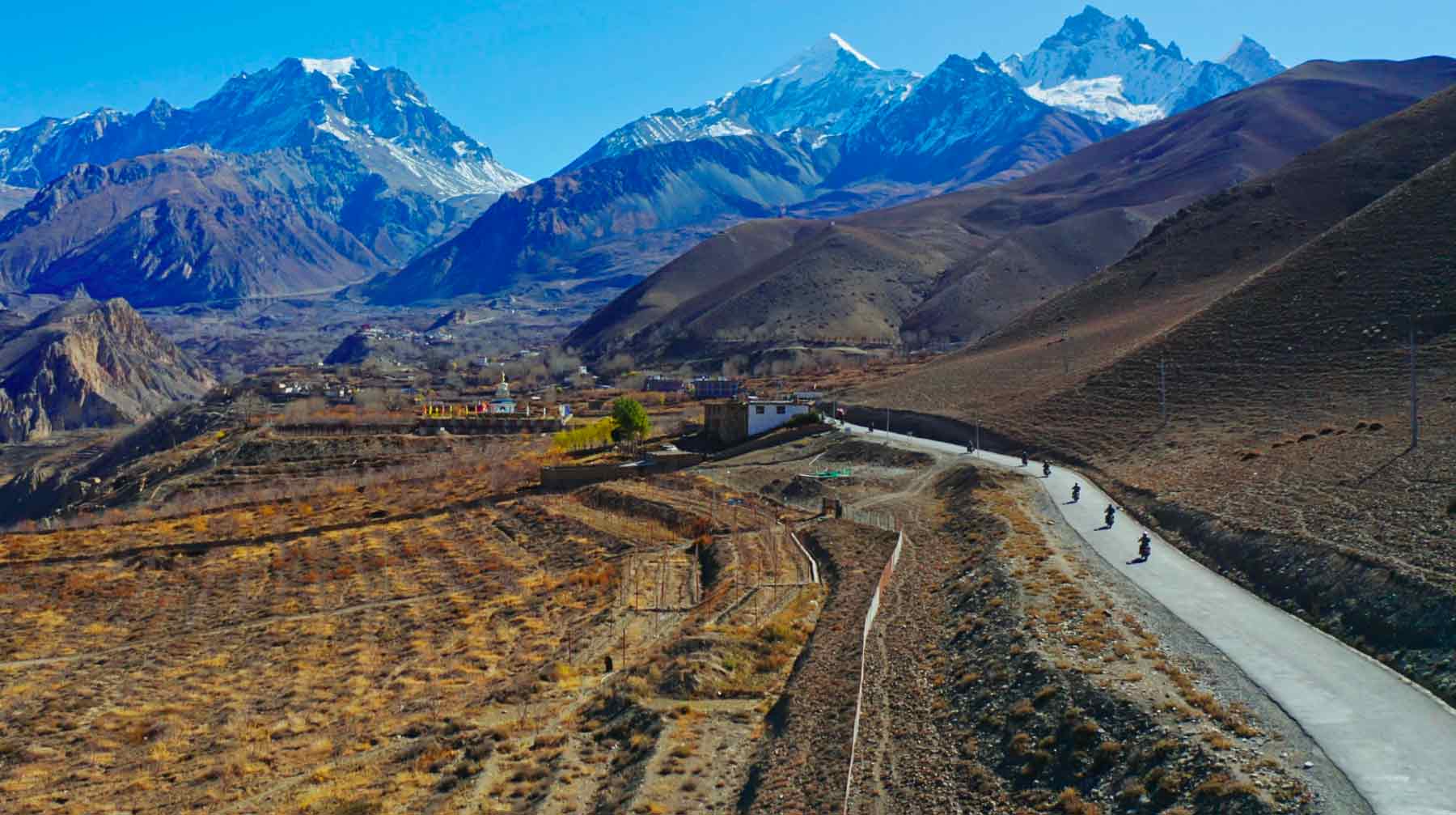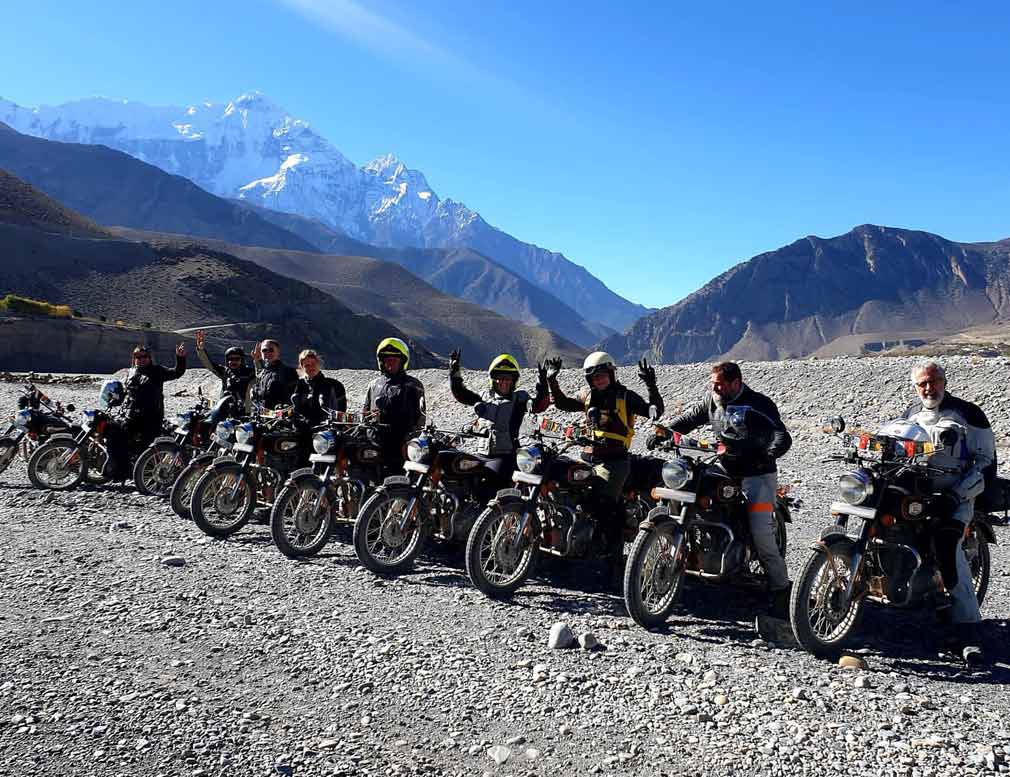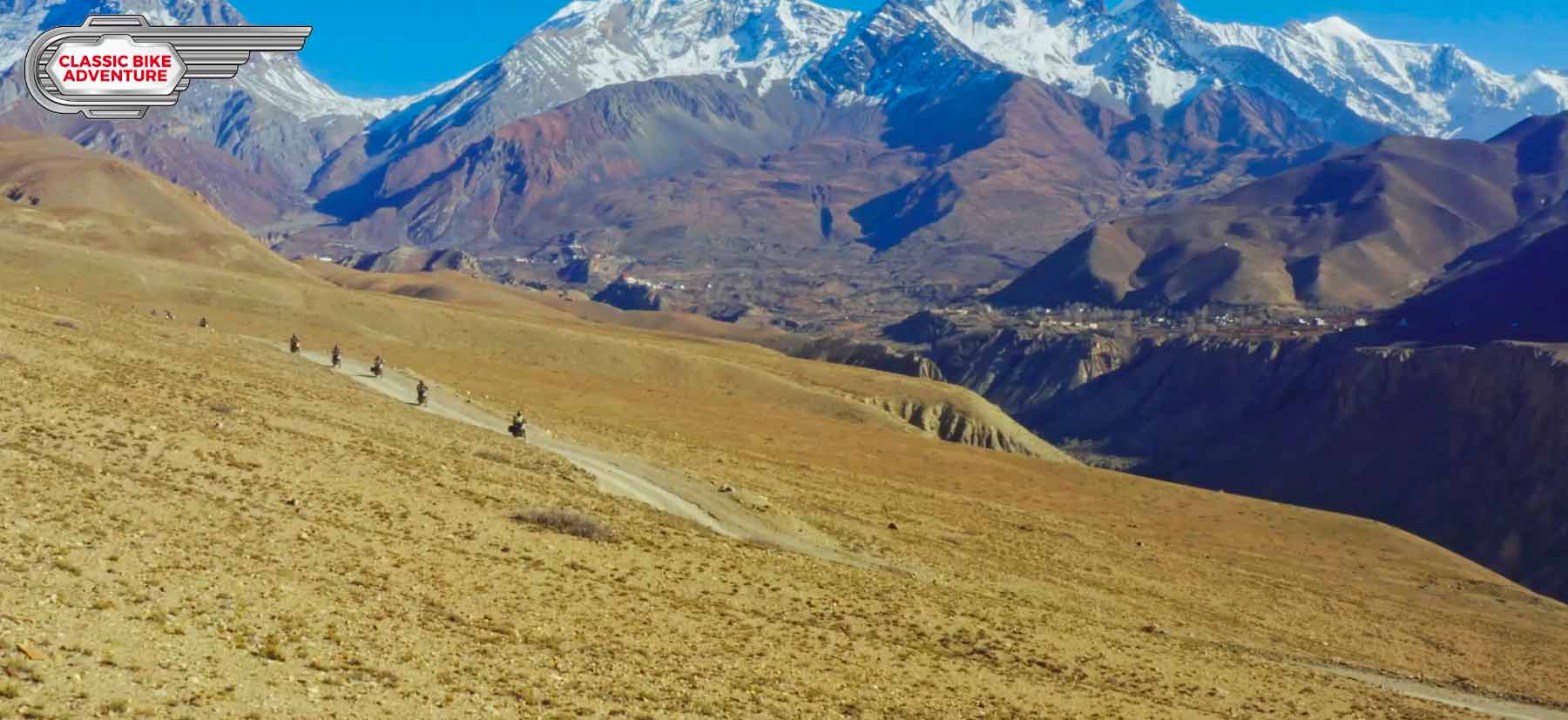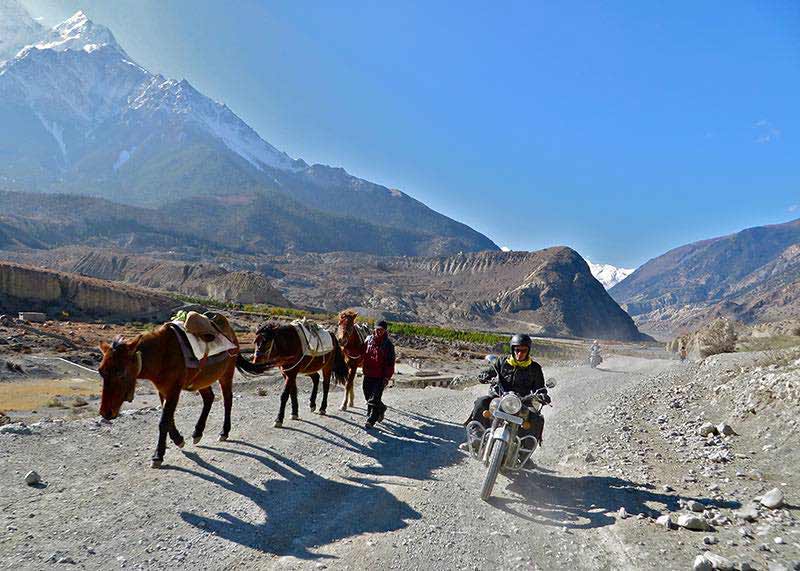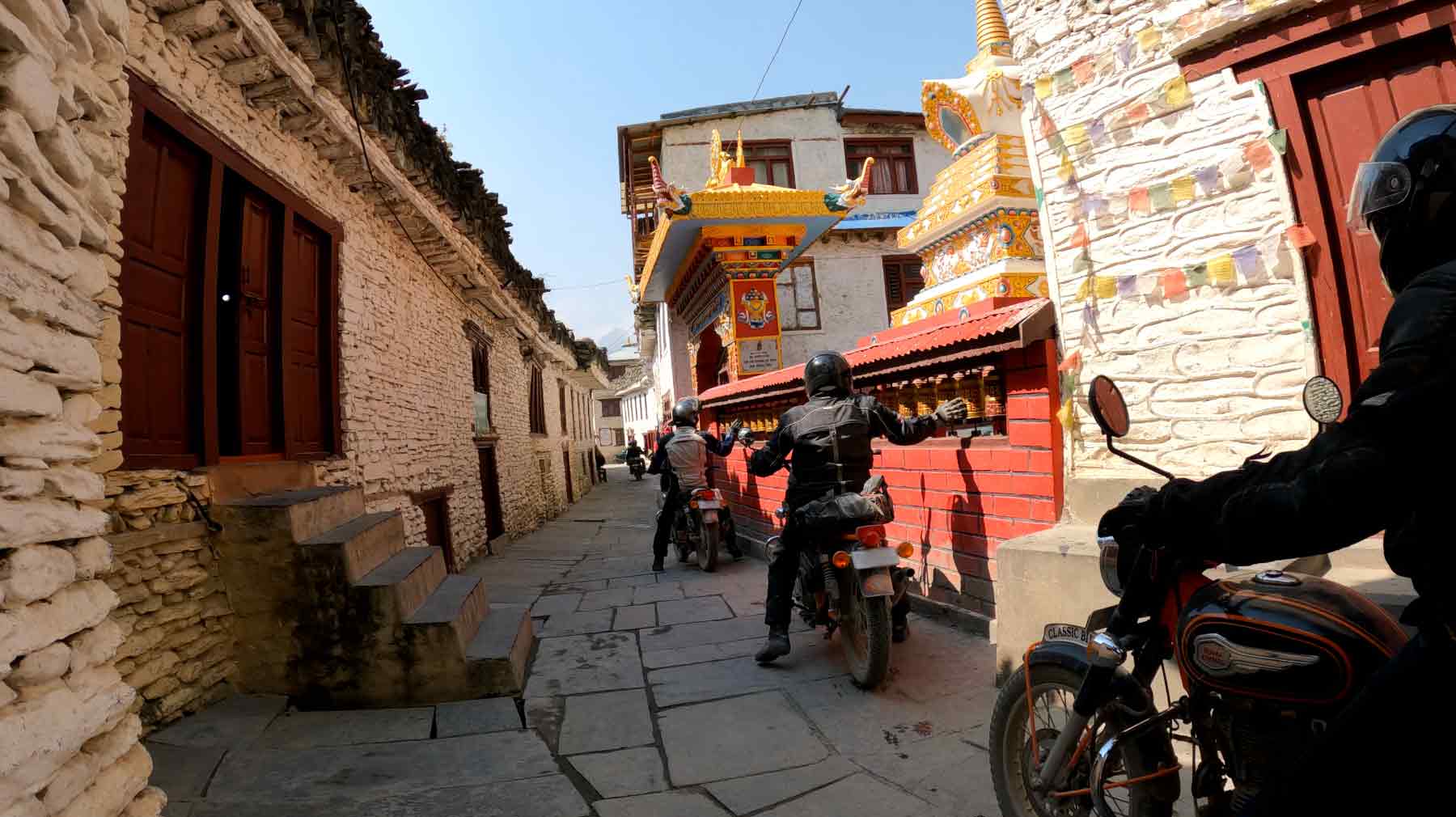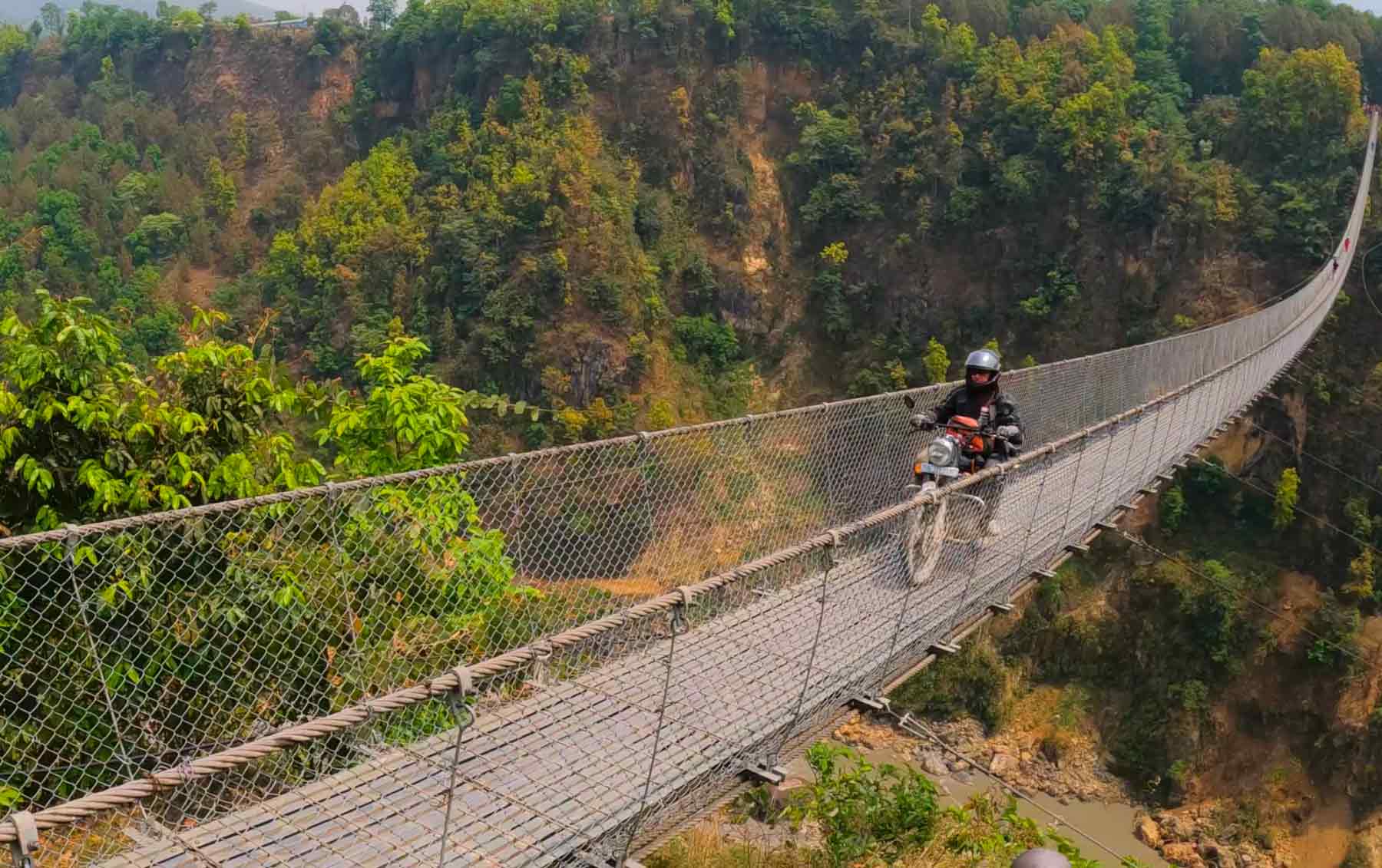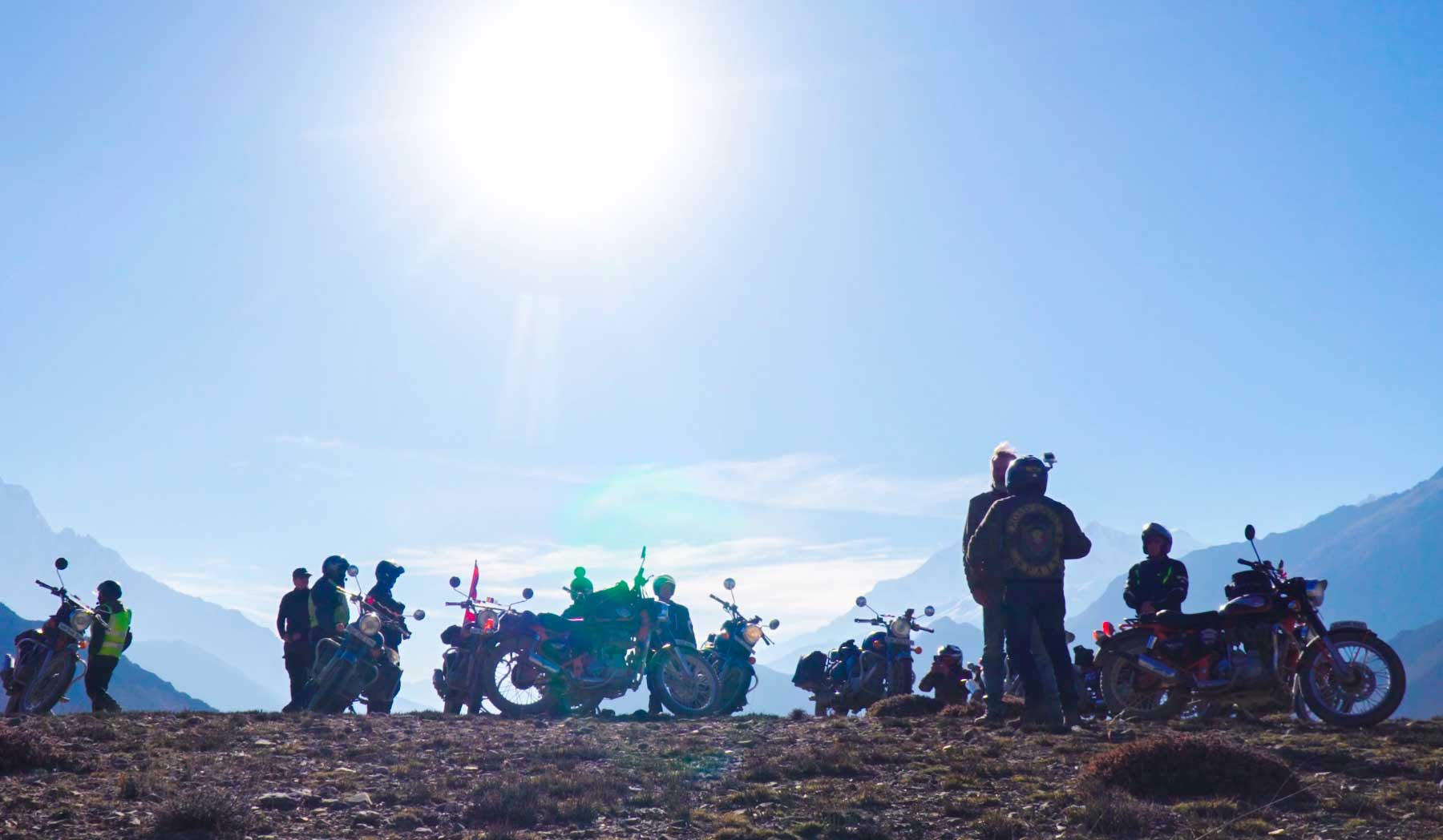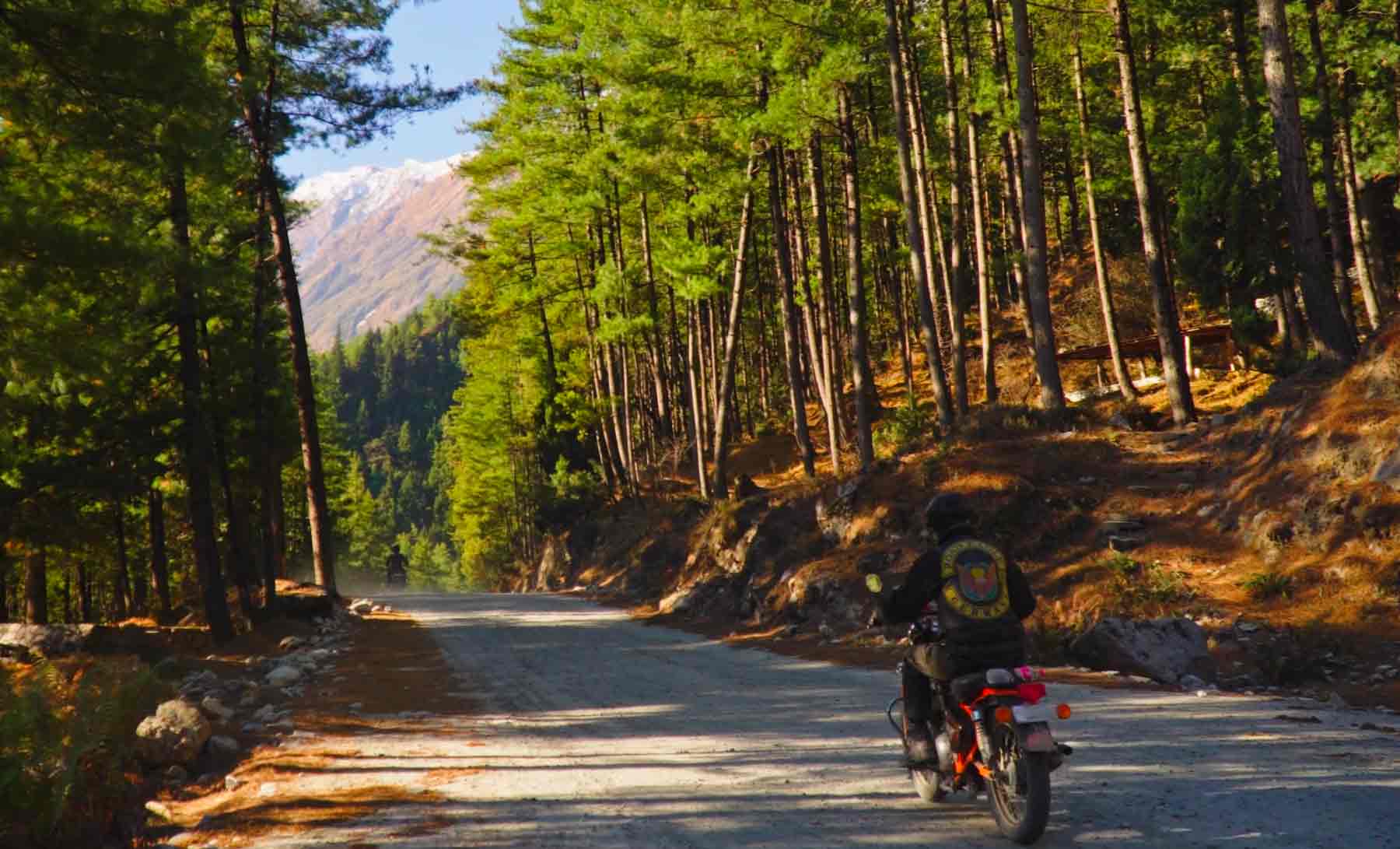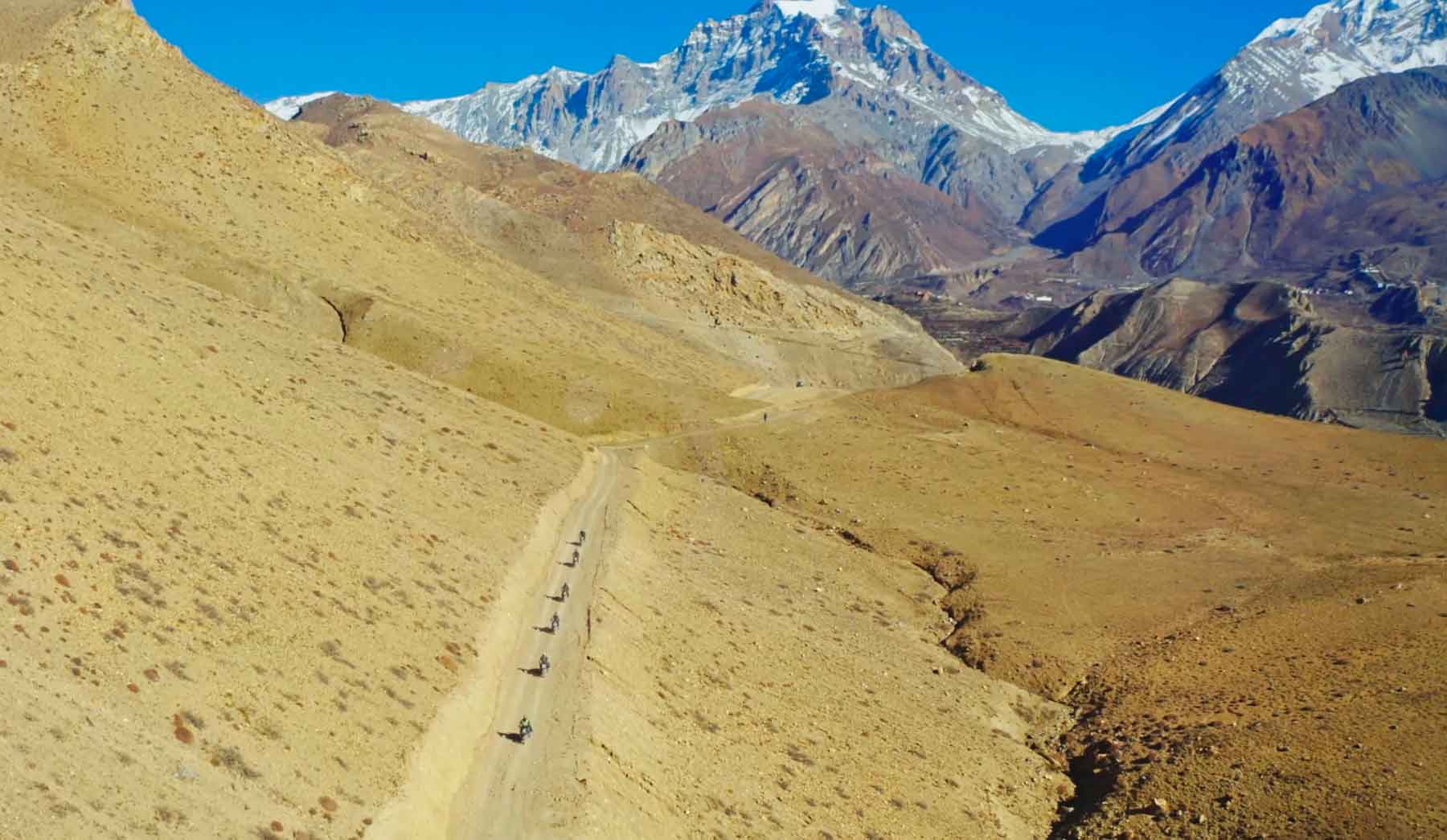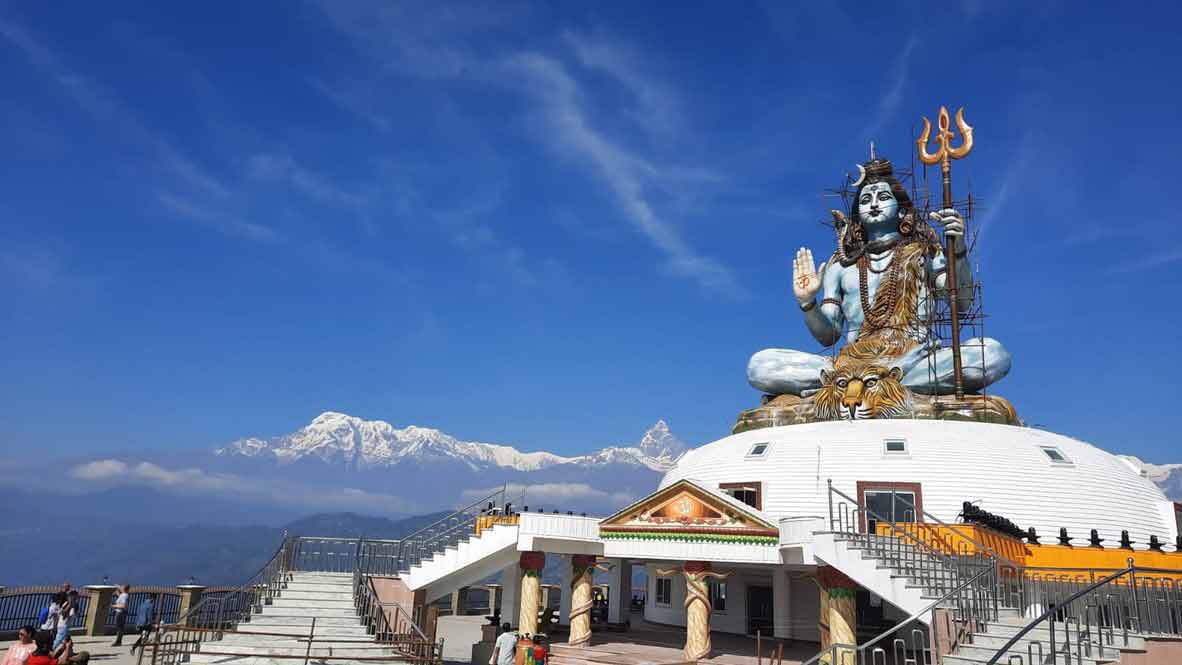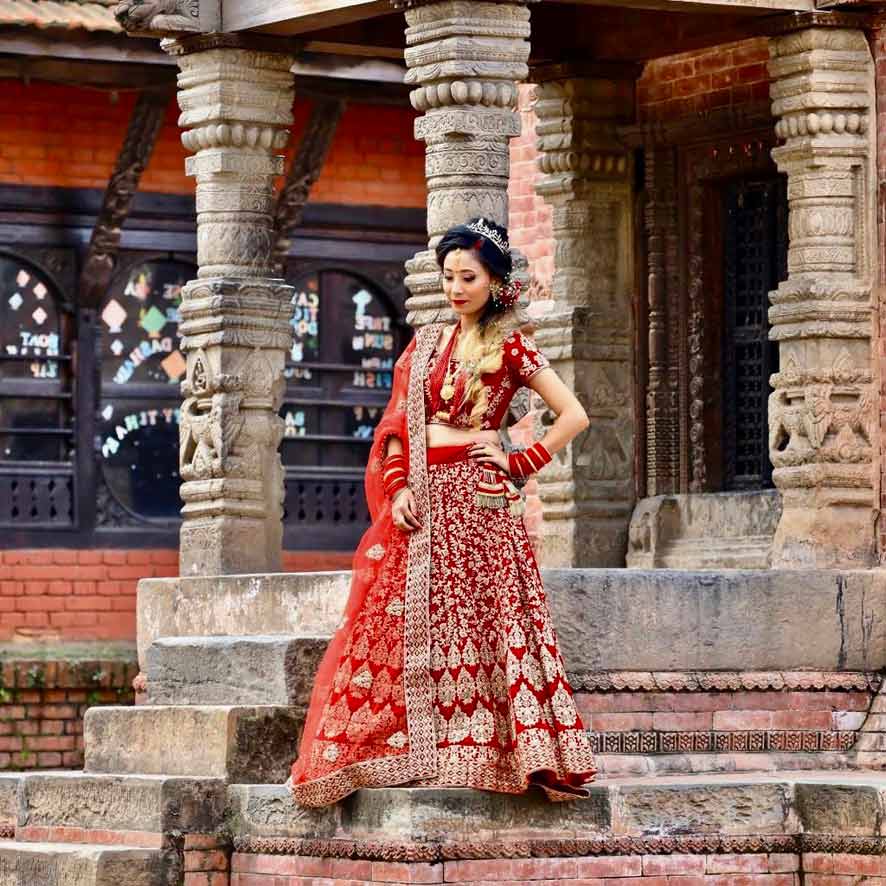

Nepal Motorcycle Tour – AT A GLANCE
Road to Mustang Nepal Motorcycle Tour – Itinerary
Royal Enfield Nepal Motorbike Tour – Questions & Answers
Although the daily stages are between 50 and 200 kilometers, they are by no means short or quick to master. Most of the stages are full riding days, due to the road conditions and the visiting program. Riding in Nepal is challenging and our daily distances are always based on the routes and the road surface. One thing is guaranteed: it won’t be boring.
A travel day normally begins at 8 am with breakfast. Around 9 am, after a short briefing by the road captain, it’s time for the day’s riding, the mileage of which can vary quite a bit. Plenty of time will be available for lunch and coffee breaks, of course. Depending on the day’s mileage, we’ll reach the destination hotel between 3 and 4 pm.
Since our tours vary considerably, we may also hit the road at 8 am on high-mileage days – which is also nice, because then we have the whole day ahead of us.
Technical specifications: Single-cylinder four-stroke, 499 cc, 16 kW (28 bhp) at 4,600 rpm, 178 kg, 80 cm seat height, 123 kph max.
Our Enfields were manufactured from 2013 to 2017 and are well-maintained. Naturally, some of them bear the minor battle scars typical of touring motorcycles. Technically, they are all in top shape and perfectly suited to the planned tours. They’re tremendous fun to ride, and their handling is safe and predictable after a brief familiarization period. Our average speeds on the tour range from 40 to 60 kph, depending on the road conditions and traffic.
Riders must make a deposit of USD/EUR 500.00 in cash for their bikes. The deposit will be refunded when the bike is returned in good condition. The deposit corresponds to the comprehensive insurance deductible for damage to the rented bike and damage or injuries to third parties caused by the rider.
(The deductible is payable in such cases!)
Important note: The deductible also applies to damage or injury to third parties. In practice, the rider is initially liable for the full damages. The costs are later refunded by the insurance company, minus the deductible.
Your baggage will be carried by the support vehicle. Please don’t pack too much – remember: less is more. From time to time, we’ll have to carry our baggage over short distances to the hotel. Baggage is not insured, so please be sure to purchase your own baggage insurance for the trip if necessary. Your personal items for the day are best kept in the saddlebags or your daypack. Tank bags – including magnetic ones – can be used on the Enfields, but we don’t provide them.
Simple street maps are often available locally. The best road maps are available from the German publishers Reise Know How and Nelles. These are only available in specialized bookstores or online.
All riders must have a valid motorcycle driving license issued in their home country. An international driving license is also required. Be sure to contact the relevant authorities in your home country well in advance for more information on obtaining an international driving license.
You will need your passport, national driving license, international driving license and flight ticket. Please be sure to make photocopies of all of your important travel documents and carry them separately. They can be invaluable in an emergency.
We ride 500cc Royal Enfield Bullets manufactured from 2014 to 2017 that feature electric starters, 5-speed gearboxes with the gearshift on the left, front disk brakes, roomy and rugged leather saddlebags, crashbars, 19” tires and twin horns.
Our European tour guides are skilled motorcyclists and inveterate travelers who love India. They’re resilient in the face of stress and know the history and culture of the regions they cover. Our Indian mechanics are experienced Enfield specialists who all speak English and are happy to help with any technical problem, great or small.
A stand-in rider is always available. More information on our travel concept is available here.
Groups generally consist of 8 to 14 riders and 2 to 6 passengers. The minimum number of participants is 6 riders.
Yes, all passengers have a guaranteed seat. In bad weather or challenging riding conditions, they can switch to the support vehicle at any time – and back to the bike when conditions improve.
Riding two-up is almost always possible. In difficult terrain or on rough tracks, every passenger has a guaranteed seat in the support vehicle to keep things relaxed for both rider and pillion.
We always recommend that you take out travel insurance to cover costs incurred if you need to cancel the trip due to illness or other reasons. When shopping for travel health insurance, make sure the policy covers the potentially high cost of medical evacuation to your home country. Both forms of insurance can save you a lot of money in an emergency and we recommend them unreservedly. In many countries, your national motoring organization can provide the coverage you need.
You will definitely want to bring your riding suit with protectors and a helmet. You will also need motorcycle boots or lighter riding shoes and gloves. While your gear should be breathable in hot climates, you need to be ready for anything at high altitudes and in the Himalayas. We recommend winter gloves, warm socks, liners for jackets and trousers, a scarf and face protection. Rain gear is a good idea if your riding suit is not waterproof.
Please note that we do not hire out clothing. We believe that your own riding gear will fit best and thus give you the best protection. If you forget anything, we’ll find a solution, however. We often have spare gear with us, or we can point you in the direction of a shop.
Tour Concept by RC Peter
